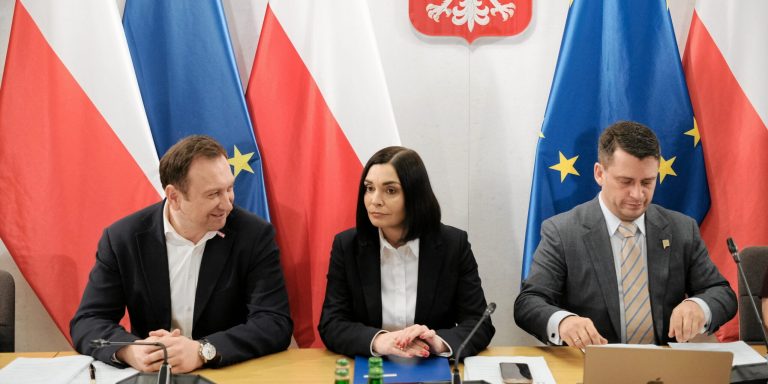Polish city introduces 35-hour working week for officials

A Polish city has announced that its officials will now only work a 35-hour week instead of the traditional 40 hours. Their pay will remain the same.
The new system, which will begin in September, has been introduced by the mayor of Włoclawek, Krzysztof Kukucki, in keeping with a policy that his party, The Left (Lewica), wants to implement across Poland.
“Mayor Kukucki has once again shown that, for those who want it, there is nothing difficult in reducing the working time of officials while maintaining the same opening hours for residents,” wrote The Left. “Congratulations to Mayor Kukucki on a great decision; now it’s time for the whole of Poland!”
Da się? Da! 💪 35-godzinny tydzień pracy we Włocławku już od 1 września!
Prezydent @Kukucki ponownie pokazał, że dla chcącego nic trudnego skracając czas pracy włocławskich urzędników przy zachowaniu identycznego czasu otwarcia urzędu dla mieszkańców.
Gratulujemy prezydentowi… pic.twitter.com/xbeLmhO3ta
— Lewica (@__Lewica) August 5, 2024
Employees of the town hall in Włocławek – a city of around 100,000 in central Poland – will be able to choose how they want the change to affect their schedule. They can either work an hour less each day or opt for a four-day working week. Either way, their salaries will not change.
Kukucki claims that a shorter working week for civil servants will not have negative effects for residents. “But we will continue to inform you of the details,” he told local news service Nasze Miasto Włocławek.
The mayor’s assurances, however, have not reassured all residents, some of whom are unhappy that their city is being subject to such an “experiment”, reports the Gazeta Wyborcza newspaper.
Sorry to interrupt your reading. The article continues below.
Notes from Poland is run by a small editorial team and published by an independent, non-profit foundation that is funded through donations from our readers. We cannot do what we do without your support.
Włocławek will become the second place in the country to introduce such a policy, following the decision on 1 July by Leszno, a town of 62,000 in western Poland, to introduce a 35-hour working week for officials.
Leszno’s mayor, Grzegorz Rusiecki, hails from the centrist Civic Coalition (KO), which is part of the national ruling coalition that also includes The Left.
Poles work the second-longest hours in the European Union, behind only the Greeks, according to Eurostat data. The country also has one of the EU’s lowest unemployment rates.
Poles work the second-longest hours in the EU, new @EU_Eurostat data show.
In 2022, they worked on average 40.4 hours a week compared to the EU-wide figure of 37.5 hours and behind only Greece (41 hours) https://t.co/dXTDGdg0O3
— Notes from Poland 🇵🇱 (@notesfrompoland) September 22, 2023
Last year, ahead of parliamentary elections, The Left, then in opposition, promised to introduce a 35-hour working week if it came to power. After those elections, it helped form a new government, though it is the smallest member of the ruling coalition.
The head of the new goverment, Donald Tusk, also announced in July last year – before coming to power – that his KO group would prepare a pilot programme for shortening the working week. However, since coming to office there have been no further developments.
Earlier this year, one of Poland’s oldest firms, Herbapol Poznań, announced it would gradually cut its working week to four days, aiming for a better “work-life balance” for its 400 employees.
One of Poland’s oldest firms has announced the introduction of a four-day working week for all of its 400 staff.
It hopes the change will improve employees’ wellbeing and make the company more attractive as an employer
https://t.co/9QoPkAriLN
— Notes from Poland 🇵🇱 (@notesfrompoland) February 5, 2024
Main image credit: Artur Czachowski / Wikimedia (under CC BY 2.0)

Alicja Ptak is senior editor at Notes from Poland and a multimedia journalist. She previously worked for Reuters.






